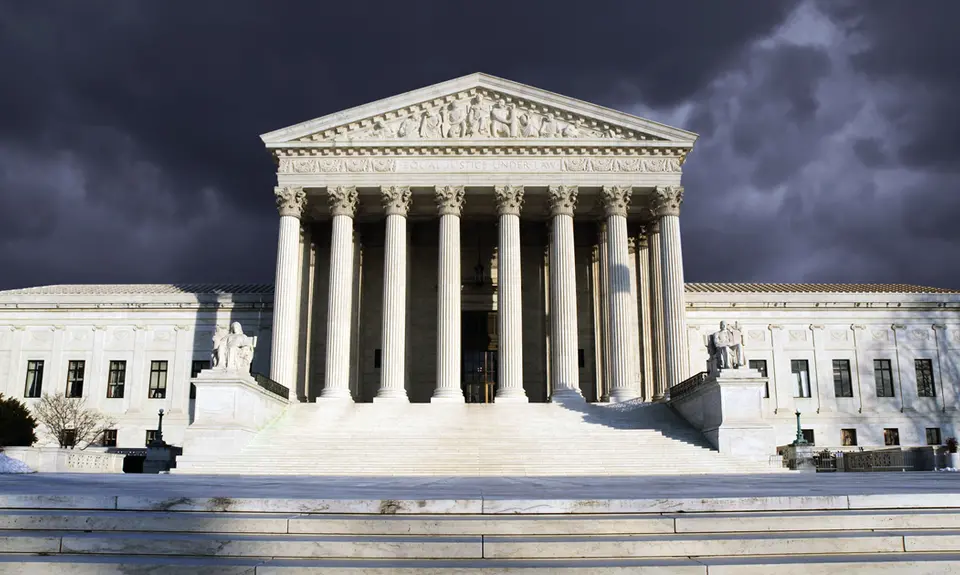Today, the Supreme Court held oral arguments in the Supreme Court in two cases concerning the Trump administration rule that severely limits contraceptive coverage under the Affordable Care Act (ACA). As always, it is difficult to predict the outcome of the case, but the arguments did make clear the tremendous harm to tens of thousands of women, and the potential danger to the ACA and religious liberty, that a decision in favor of the rule would cause. And given the current right-wing 5-4 majority on the Court and the comments of several of the justices, those dangers are all too real.
Under the Trump administration rule that was invalidated by a federal court of appeals, any employer who has a religious or moral objection to their insurer providing the contraceptive coverage required under the ACA can completely opt out and not even comply with a previous accommodation under which the government would be notified of such objections and the government would find another insurer who will provide the coverage. Justice Ruth Bader Ginsburg, who participated in the telephone oral argument as she recovers in a hospital from an infection, pointed out that upholding the rule would “toss to the winds” Congress’s effort in the ACA to provide “seamless” and “no cost” contraceptive care, and would also unfairly hurt women whose religious views differed from their employers. Under questioning from Justice Sotomayor, Trump Solicitor General Noel Francisco admitted that as many as 125,000 women could well need to find some other way to get coverage for contraception. Justice Elena Kagan suggested that the rule “sweeps too broadly” and effectively “scraps” the pre-existing accommodation for employers with religious objections. And as Pennsylvania’s Principal Deputy Attorney General Michael Fischer pointed out, the rule applies even to employers who have any “moral” objection to such coverage, which could expand the exemption’s reach even further.
The Court’s right-wing justices, including Trump justices Neil Gorsuch and Brett Kavanaugh, seemed receptive to the arguments that the Department of Health and Human Services had the discretion under the ACA to limit which employers had to help provide the contraceptive coverage, and that the Religious Freedom Restoration Act (RFRA) at least allowed HHS to enact the rule to “accommodate” employers with religious objections. Former Solicitor General Paul Clement, arguing for Little Sisters of the Poor Saints Peter and Paul, argued that RFRA in fact requires the rule in light of the allegedly “substantial burdens” on religion caused by complying with the accommodation. Justice Clarence Thomas strongly suggested that the states challenging the rule did not have standing and that the lower court erroneously issued a nationwide injunction against the rule.
As is often the case, Chief Justice John Roberts asked questions indicating concerns about arguments by both sides. At one point, he suggested that arguments invoking RFRA were “too broad” and might not justify an exemption as far-reaching as the Trump rule. But he also seemed receptive to the argument that if HHS has the authority to specify which contraceptive services should be provided, it should also have the discretion to determine who should and should not be required to provide the coverage. He and several justices, including moderates and far-right conservatives, expressed frustration that no accommodation between the opposing positions has been reached.
The argument itself was very different from arguments I have attended in person over the years. Instead of a free-for-all period of questioning with justices often interrupting each other, each justice took a turn asking questions of each of the three lawyers who argued, with Roberts serving as moderator. Hopefully when the justices return to hearing arguments at the Court, it will continue allowing at least live online broadcast of the proceedings.
We likely will not know until this summer how the Court will rule on this crucial case. Justice Sonia Sotomayor asked a particularly chilling hypothetical question: What if similar religious objections were raised by some employers to having their insurers cover the cost of COVID-19 immunizations under a future health care law? The argument, and that hypothetical, made even more clear how high the stakes in the case really are for access to health care and for religious liberty.
